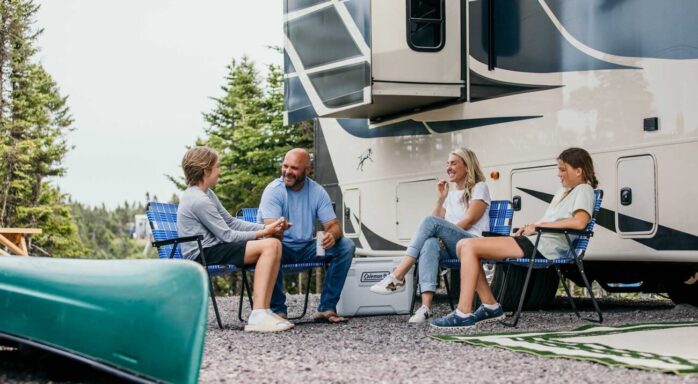
For many, an RV isn’t just a mode of transportation—it’s a vessel of dreams, epitomizing the spirit of freedom and adventure. This makes its maintenance before long trips not just advisable, but essential. You wouldn’t dive into the ocean without checking your scuba gear, would you? Similarly, you shouldn’t venture out on the open road without ensuring that your home-on-wheels is in prime condition. A well-maintained RV can be the difference between a trip filled with wonderful memories and one plagued by unexpected breakdowns. With meticulous care, you’re not just ensuring a smooth ride, but also protecting a significant investment, ensuring its longevity, and creating a safer environment for you and your loved ones.
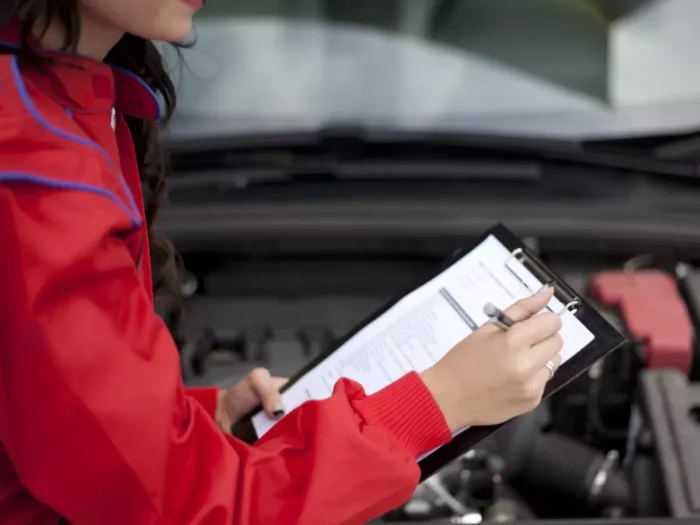
Pre-Trip Inspection Checklist
Launching into your journey without first inspecting your RV is a gamble. Think of this checklist as your map, guiding you through the necessary checkpoints to ensure a safe and smooth voyage. Your RV is a complex machine, blending the intricacies of a home with the mechanics of a vehicle.
Engine: A humming engine is a happy engine. Check the belts for any signs of wear or potential breaks. Inspect hoses for leaks or brittleness. Turn on the engine and listen. Any unusual noises could be a sign of looming troubles.
Tires: Your RV’s shoes. They bear the weight and tackle various terrains. Look for any signs of uneven wear, cracks, or punctures. Tires should be adequately inflated according to the manufacturer’s guidelines.
Brakes: Vital for safety. Test their responsiveness. Too soft or too hard could be indicators of wear or potential failure. Remember, an RV takes longer to stop than regular cars.
Fluids: These are the silent workers, constantly ensuring your RV runs efficiently. This includes engine oil, transmission fluid, brake fluid, coolant, and even the often-forgotten windshield washer fluid.
Electrical Systems: An RV without functioning lights is a hazard. Regularly inspect interior and exterior lights. Check connections for wear, rust, or corrosion, and ensure your RV’s battery is in prime condition.
Tire Maintenance
An often-underestimated aspect of vehicle care, tires play a pivotal role in ensuring safety and efficiency. Properly inflated tires aren’t just about preventing flats or blowouts; they’re about optimal fuel efficiency, handling, and reducing wear and tear on suspension components.
Inspect: Regularly cast a keen eye. Look for bulges, punctures, or cracks. These are tell-tale signs of wear or potential threats waiting to manifest.
Rotate: Much like how we’d alternate shoes to ensure even wear, tires need similar attention. Consider rotating them if they’ve been on the road for thousands of miles since their last rotation.
Replace: Tires have a lifespan. If the tread depth is below the recommended limit or if there’s visible damage, it’s time for a replacement.
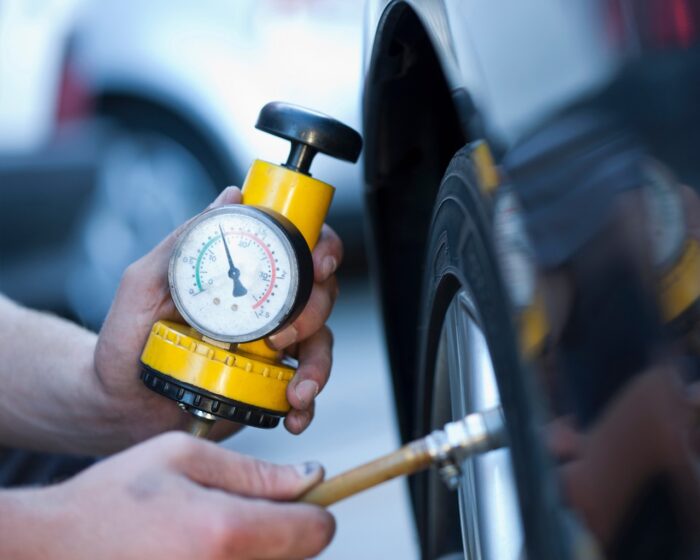
Fluid Levels
Imagine your RV as a living, breathing entity. Just as our bodies rely on fluids to function, so does your RV. Ensuring the right levels and quality of these fluids is akin to feeding your vehicle the nutrition it needs to deliver peak performance.
Engine Oil: This is like the blood of your RV. It keeps internal parts lubricated and running smoothly. Check its level regularly and be attentive to its color and consistency. Dark or gritty oil might signal it’s time for a change.
Transmission Fluid: Essential for shifting gears smoothly. It should maintain a clear, pinkish hue. If it turns dark or has a burnt smell, it could indicate potential issues.
Coolant: It keeps your RV from overheating, especially on those long summer drives. Always ensure it’s up to the “full” line, and inspect for contaminants.
Brake Fluid: This fluid transfers the force of pushing a brake pedal to the brakes themselves. It should be clear, and murkiness may signal potential problems. It’s paramount for safe stops, especially considering the size and weight of an RV.
Battery Health
Your RV’s battery is its heartbeat, essential not just for starting the engine, but for powering various appliances and systems when stationary. The last thing you want is to be stranded due to a dead battery.
Test: A routine battery test can forewarn you of potential failures. Use a multimeter to check the voltage. A reading below 12 volts might mean it’s time for a replacement.
Clean: Battery terminals can corrode over time, affecting performance. Gently cleaning them with a mixture of baking soda and water can improve connectivity.
Charge: If your RV has been dormant, ensure the battery is fully charged before your next trip. Also, consider investing in a solar charger to keep the battery topped off during your adventures.
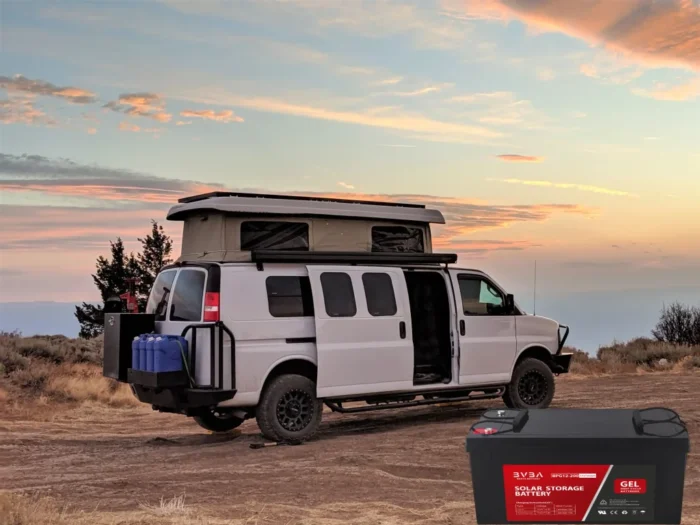
Appliance Functionality
The luxury of an RV lies in its array of onboard appliances. These comforts of home can turn a camping trip into a glamping experience.
Inspect: Check all appliances regularly. Look for signs of wear or potential issues, and remember, the better you care for them, the longer they’ll serve you.
Clean:
General Cleaning: Keeping appliances like refrigerator coils clean can drastically improve their efficiency, saving you power and potential repair costs.
Toilet Cleaning: An essential but often overlooked task. Regular RV toilet treatment prevents odors, bacteria build-up, and ensures a hygienic environment. Use RV-specific toilet cleaners, as they are designed to be safe for RV plumbing and septic systems.
Service: Don’t wait for an appliance to break down. Periodic servicing, either DIY or professional, ensures longevity and can help catch minor issues before they become major problems.
Taking special care of every facet of your RV’s interior, including the toilet, ensures that your trips remain comfortable and hygienic.
Seal and Roof Inspection
Your RV’s exterior, especially the roof and seals, are its armor against the elements. A leaky roof or seal isn’t just about water getting in; it’s an invitation for mold, mildew, and structural damage.
Inspect: A routine check can save you a lot of heartache. Look for cracks, gaps, or any signs of wear in the seals and the roof.
Seal: Noticed a breach? Address it immediately. Using the appropriate sealants ensures a watertight seal, safeguarding your RV’s interior.
Clean: Over time, debris, leaves, and dirt can accumulate on your roof. Regular cleaning prevents water pooling and potential damage.
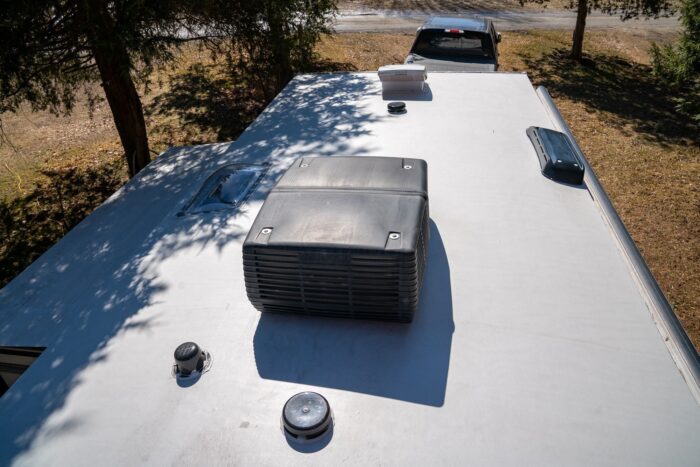
Safety Equipment
Your RV should be a haven of safety. Equip it with the essentials to ensure that emergencies can be addressed promptly:
Smoke Detectors: Regularly test them and replace batteries annually, or as needed.
Fire Extinguishers: Ensure those are within reach, fully charged, and you’re aware of its operation.
Carbon Monoxide Detectors: Especially crucial in an enclosed space like an RV. Test it routinely.
Conclusion
The joy of traveling in an RV comes with the responsibility of maintaining it. Proper care ensures not just a smooth ride, but peace of mind, allowing you to focus on making memories and cherishing the journey. As the adage goes, “It’s better to be safe than sorry.” A well-maintained RV is a passport to countless adventures, ensuring they’re filled with delight and devoid of distress. Safe travels!








